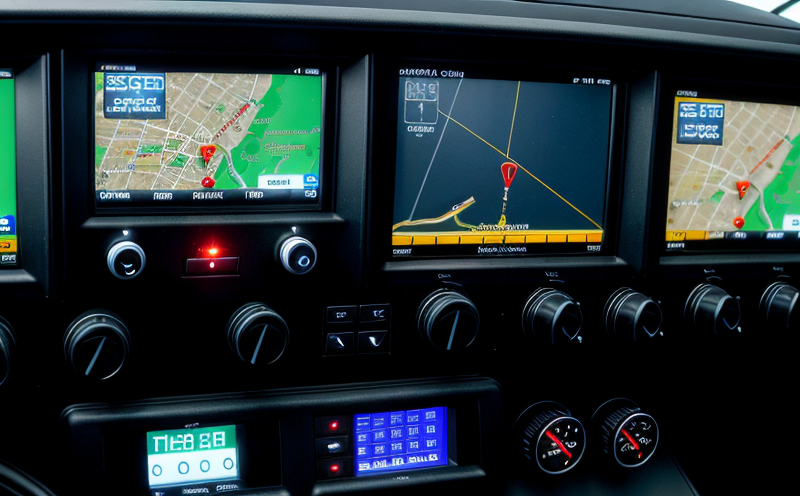ISO 19014 Endurance Testing of LED Navigation Lights
In the marine and ship equipment testing sector, ensuring that navigation lights meet stringent international standards is crucial. The International Maritime Organization (IMO) and other regulatory bodies mandate specific performance criteria for these critical safety devices to ensure maritime navigation remains safe and efficient.
The ISO 19014 standard provides a comprehensive framework for the endurance testing of LED-based navigation lights. This service is designed specifically for manufacturers, quality managers, compliance officers, and R&D engineers who need to ensure their products meet these rigorous standards.
The ISO 19014 standard covers various aspects, including environmental conditions, optical performance, electrical characteristics, and mechanical robustness. The endurance test simulates real-world operating conditions that navigation lights encounter during long-term use at sea. This includes exposure to salt spray, temperature variations, vibration, and other environmental factors.
The testing process is critical for several reasons. Firstly, it ensures compliance with international regulations such as the International Regulations for Preventing Collisions at Sea (COLREGS). Secondly, it helps manufacturers improve product reliability, which directly translates into enhanced safety on the high seas. Lastly, successful completion of these tests can be a significant differentiator in market competition.
For R&D engineers and quality managers, this testing service offers invaluable insights into potential weaknesses in their designs that may not be apparent during initial development stages. By identifying issues early, they can make necessary adjustments to enhance product performance and durability before mass production.
The scope of ISO 19014 endurance testing includes both laboratory-based simulations and outdoor exposure tests under controlled conditions. The typical test duration ranges from several weeks up to six months or more depending on the specific requirements set forth in the contract agreement with the client.
Scope and Methodology
The scope of ISO 19014 endurance testing encompasses a wide range of parameters aimed at assessing the performance of LED navigation lights under simulated real-world conditions. The following table provides an overview:
| Parameter | Description |
|---|---|
| Environmental Exposure | Involves exposure to salt spray, humidity, and temperature variations. |
| Vibration Testing | Simulates the effects of ship movement over extended periods. |
| Electrical Characteristics | Evaluates power consumption, current flow, and overall electrical stability. |
| Luminous Intensity | Metric for measuring light output to ensure compliance with regulatory standards. |
| Color Stability | Determines the consistency of emitted color over time. |
| Beam Angle Consistency | Assesses whether the light distribution pattern remains stable throughout its operational life. |
| Mechanical Robustness | Evaluates resistance to physical impacts and stresses typical in marine environments. |
The methodology involves rigorous laboratory-based testing followed by outdoor exposure under controlled conditions. This approach ensures that the tested LED navigation lights undergo a comprehensive assessment of their performance characteristics before being declared compliant with ISO 19014 standards.
Industry Applications
- Shipyards and marine equipment manufacturers ensuring compliance with international regulations.
- R&D departments aiming to enhance product reliability and safety.
- Quality assurance teams responsible for verifying final product performance before release to market.
- Procurement divisions seeking reliable suppliers of navigation lighting solutions.
The results from ISO 19014 endurance tests are not only valuable for compliance but also serve as a benchmark for continuous improvement in design and manufacturing processes. This testing service is particularly beneficial for companies operating in the global maritime sector, where safety standards play a crucial role in maintaining operational integrity.
Why Choose This Test
The ISO 19014 endurance test offers several advantages that make it an essential part of any manufacturer's quality assurance program:
- Comprehensive Compliance Assurance: Ensures strict adherence to international standards, thereby avoiding potential legal issues and penalties.
- Enhanced Product Reliability: Identifies and addresses weaknesses early in the production cycle, leading to more durable products.
- Market Differentiation: Demonstrates a commitment to safety and quality, which can be a key differentiator in competitive markets.
- Customer Confidence: Builds trust with customers who value product reliability and compliance with industry best practices.
- Continuous Improvement: Provides valuable data for R&D teams to refine future iterations of their products.
- Regulatory Certifications: Facilitates the acquisition of necessary certifications that open doors to international markets.
In summary, choosing this test is not just about meeting regulatory requirements; it's also an investment in long-term success and customer satisfaction within the highly competitive global maritime industry.





